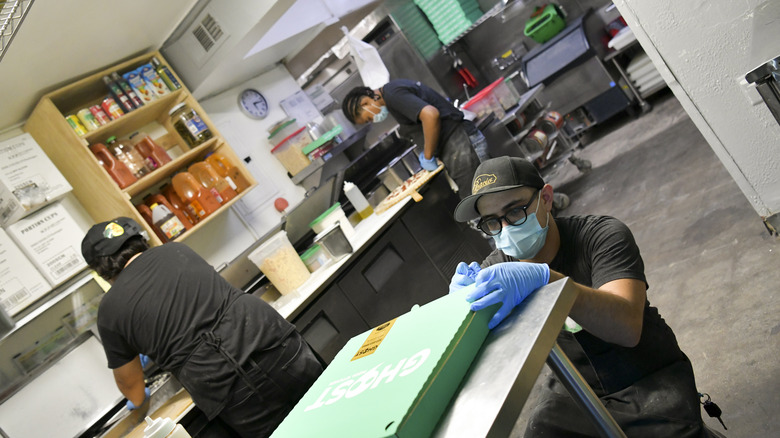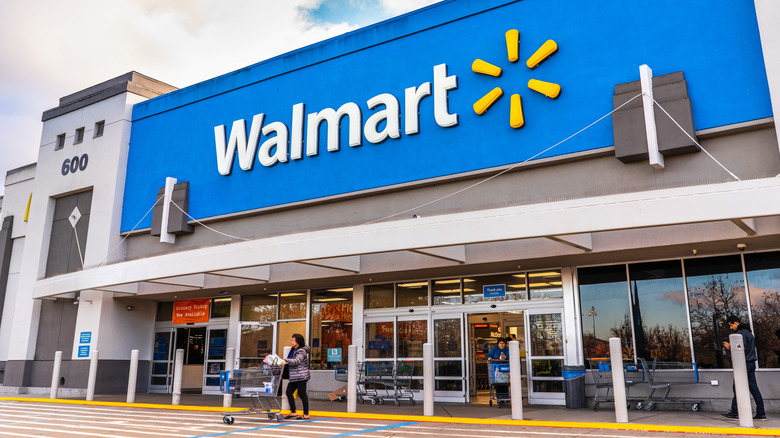What It's Really Like Inside A Ghost Kitchen
During the ravages of the coronavirus pandemic, ghost kitchens grew immensely popular as flagging restaurants had to find ways to make rent without serving diners. Even though the pandemic conditions may one day disappear, people like John Kelly, CEO of marketing software company Zenreach, expect ghost kitchens to remain. "Food delivery is one area that will probably level out to a new normal that is higher post-pandemic than pre-pandemic, and that bodes well for ghost kitchens," he explained to Food Safety News in July.
However, a description by Business Insider of Kitchen Karma illustrates that the future of ghost kitchens will not be mom-and-pop restaurants hustling for a side gig, but a large real estate venture. Kitchen Karma is a U.K. startup that allows 60 restaurants to work for a delivery-only format within a 15,000-square-foot space. It costs £45 ($62) to rent a space from 1 a.m. to 6 a.m and £90 ($123) for the 7 a.m. to 3 p.m. and 4 p.m. to 12 a.m. Each space comes equipped with the standard tools of a kitchen, as well as the space for more specialized tools to be installed.
The difference is that the earlier ghost kitchens were restaurants forced by necessity to find novel ways to use their space, while Kitchen Karma is effectively a reskinning of WeWork, but without the cultish aspects described in "The Cult of We." The real profiteers, then, are real estate owners, with entrepreneurial kitchens coming third.
Who comes second?
If the biggest winners of the ghost kitchen are those who own the space and the third-biggest winners are the kitchen staffs who can navigate the branded environment, the in between winners are the big brands who can license themselves to these ghost kitchens.
The most recent is Walmart which, as Food & Wine reported on September 7, opened its first ghost kitchen in Rochester, New York. From a special ghost kitchen counter, Walmart promises to offer a whole host of brands, such as Quiznos, Nathan's, and Costa Coffee. All of these brands, then, get a further foothold without the investment needed for a franchise. Or, they go the route Wendy's has taken, proactively creating a ghost franchise arm to its enterprise. As CNBC explains, even if fewer people order from the ghost kitchens, the investment would be worth it as it allows Wendy's to develop in more urban areas where space is limited and real estate expensive. In both cases, brands are not earning the lucrative gains of owning space or finding a path through a collapsed industry, but seizing the opportunity for easy expansion.
Moreover, the worrying rise of the Delta variant may push us to rely even more on delivery, meaning that ghost kitchens will only become a more established force in the restaurant real estate industry.

